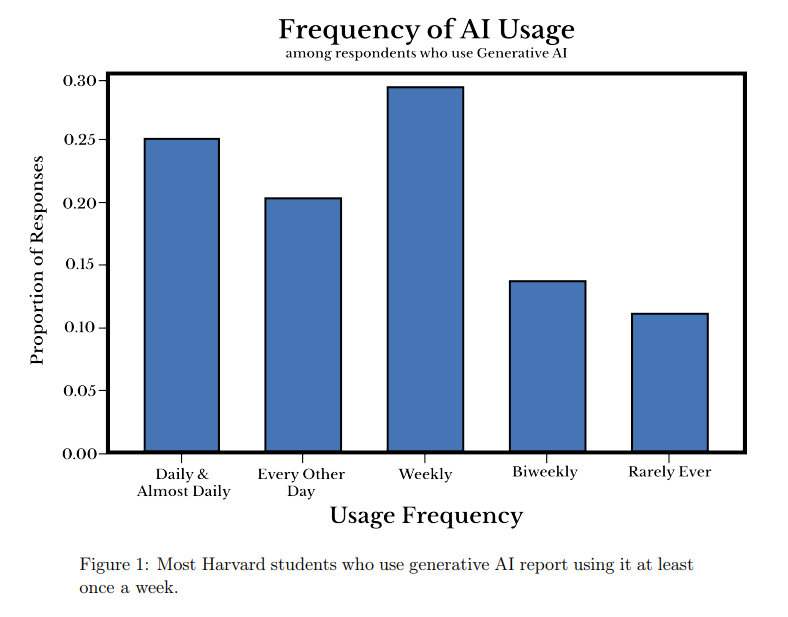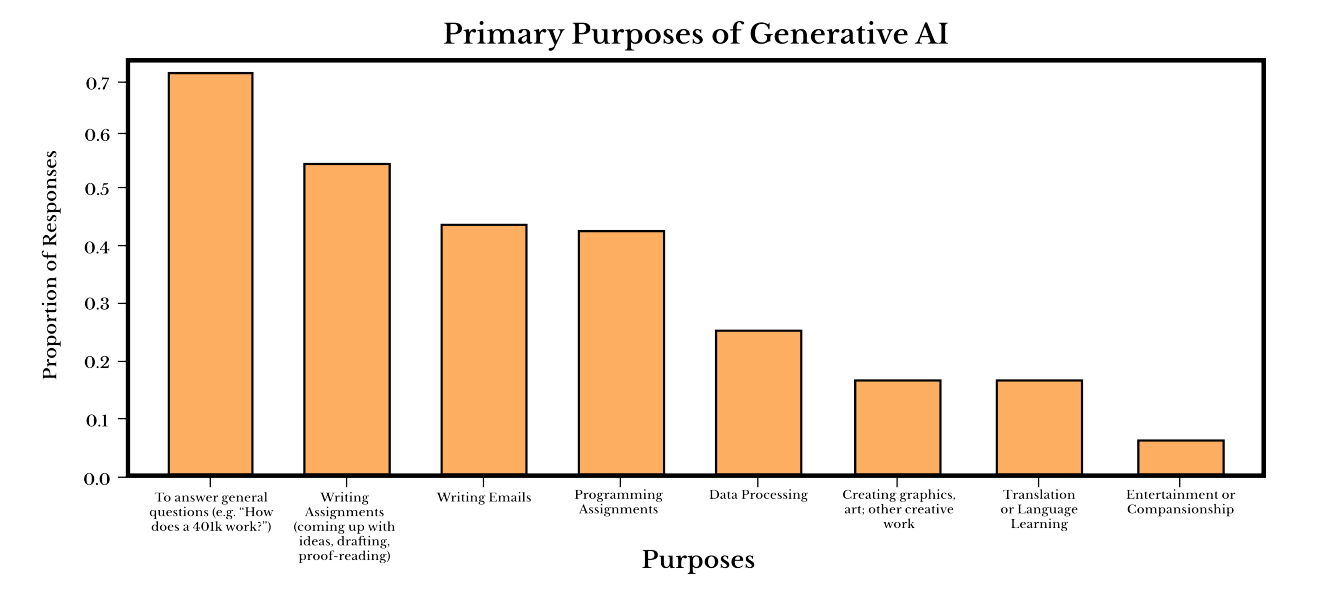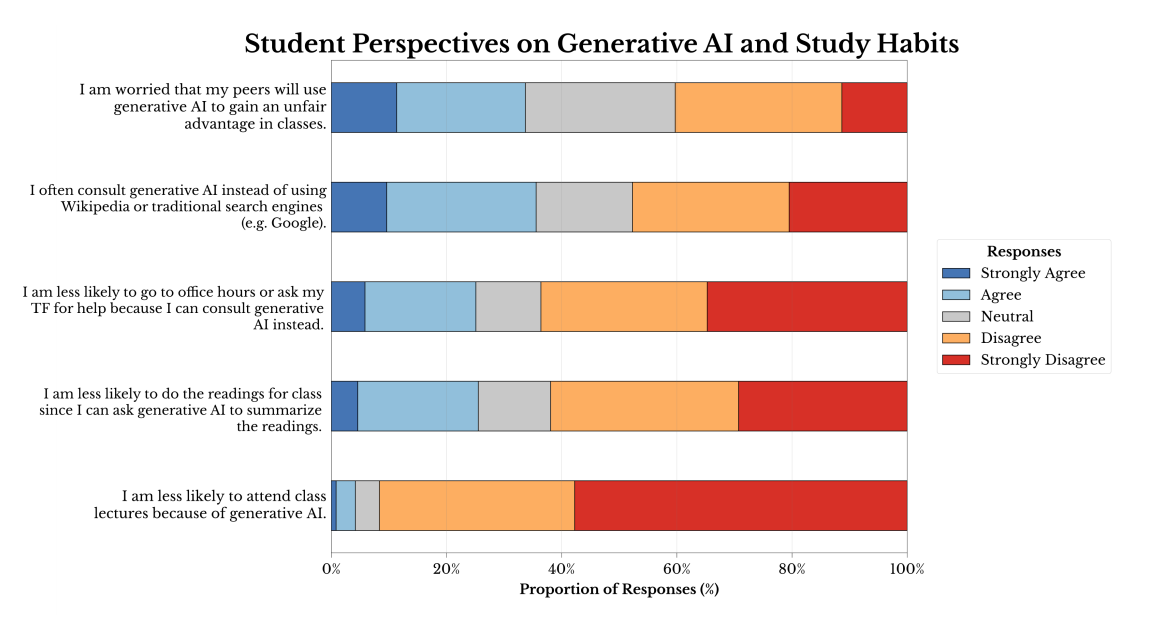Harvard study shows LLMs are already deeply rooted in students' daily lives

A Harvard Undergraduate Association survey of 326 undergraduates found that nearly 90% use generative AI in the form of LLM-driven chatbots.
The results show that AI is already firmly anchored in student life: 87.5% of respondents said they use generative AI. Among AI users, most use the technology at least once a week, and almost half use it at least every other day.

For a quarter of these students, AI partially replaces attending office hours and reading required materials. Half are worried that AI will negatively impact their career prospects.
By far the most popular is OpenAI's ChatGPT chatbot, used by over 95% of AI users. Other products like Anthropic's Claude language model or the GitHub Copilot programming assistant are each used by around 20%.
ChatGPT's widespread use among students is reportedly one reason OpenAI has not yet published a reliable AI text detector.
Google and Wikipedia lose influence
The use cases are diverse: students most frequently use AI to answer general questions. For around a third, AI systems are already replacing traditional information sources like Wikipedia or Google. Instead of searching the web, they simply ask ChatGPT.
Other common applications include help with writing essays and emails, as well as programming tasks and data processing.

According to the survey, the availability of AI also affects learning behavior: About 25% of AI users said they were less likely to attend office hours, ask instructors for help, or read required materials because of AI. However, very few reported attending lectures less often because of AI.
Around 35% of students are concerned that their peers might use AI to gain an unfair advantage in their studies. This suggests that the university should carefully define enforceable rules for the use of AI.

For 55% of respondents, AI has changed their view of their future career, and around 45% worry AI will negatively impact their career plans. This proportion is similar across almost all occupational categories.
Students are also concerned about the impact on society as a whole: around 40% believe AI systems will be more efficient than humans in almost all areas within 30 years. Just as many agree that containing the risk of AI wiping out humanity should be a global priority, comparable to pandemics and nuclear war.
Free AI access for all
Students are also concerned about the impact on society as a whole: around 40% believe that AI systems will be more efficient than humans in almost all areas within 30 years.
Just as many agree with the statement that containing the risk of humanity being wiped out by AI should be a global priority, comparable to pandemics and nuclear war.
The study also recommends how the university can respond to these developments. These include free AI access for all students, clear and enforceable rules on AI use, AI-oriented career counseling, more courses on AI's effects, and psychological support for AI-related fears about the future.
A recent study by South Korean universities found that stressed students with low self-efficacy in particular tend to overuse AI. Respondents cited increased laziness, limited creativity, and reduced critical thinking as negative consequences of AI dependency.
AI News Without the Hype – Curated by Humans
As a THE DECODER subscriber, you get ad-free reading, our weekly AI newsletter, the exclusive "AI Radar" Frontier Report 6× per year, access to comments, and our complete archive.
Subscribe nowAI news without the hype
Curated by humans.
- Over 20 percent launch discount.
- Read without distractions – no Google ads.
- Access to comments and community discussions.
- Weekly AI newsletter.
- 6 times a year: “AI Radar” – deep dives on key AI topics.
- Up to 25 % off on KI Pro online events.
- Access to our full ten-year archive.
- Get the latest AI news from The Decoder.